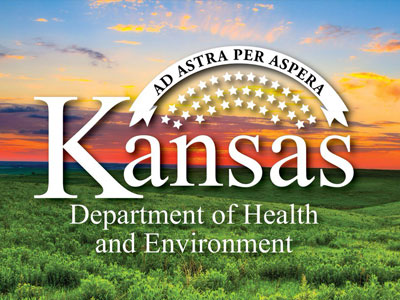KDHE Releases Data on Chronic Diseases, Related Risk Factors

The Kansas Department of Health and Environment has released the results from the 2020 Behavioral Risk Factor Surveillance Survey (BRFSS).
"The BRFSS provides Kansas-specific data on the health status and health-related behaviors of Kansas adults. We appreciate the Kansans who agreed to participate in this telephone survey to help us better understand the leading contributors to poor health and premature death, trends in health status and their points of view on health-related topics. This information is widely used for state and local public health planning, evaluation and policy development," said Julie Sergeant, PhD, Director of the Kansas BRFSS program.
Results of the 2020 survey show the rate of obesity in Kansas is over 35 percent and higher among those with diabetes or living with a disability. 22 percent of Kansans did not take part in any leisure-time physical activity. Also, more than 16 percent of Kansans smoke cigarettes, with much higher rates of smoking among those with an annual household income below $50,000. Obesity and smoking are significant contributors to chronic diseases like cancer and heart disease. Behavioral changes to reduce obesity and smoking can reduce the burden of such chronic diseases.
Additional highlights from the 2020 BRFSS data include:
- Approximately 35.3 percent of Kansas adults ages 18 years and older were obese.
- Over 19 percent of adults have ever been diagnosed with depression.
- Nearly 12 percent of adults lack health care coverage.
- Just over 17 percent of adults had engaged in binge drinking during the previous 30 days.
- African Americans in Kansas suffer from diabetes at more than double the rate of Whites.
- Less than 50 percent of adults received a flu shot during the previous year.
- Among adults age 45 and over, females were significantly more likely to suffer an injury from a fall than males.
Sergeant added that BRFSS gives an in-depth look into many health behaviors and having data to use helps shape the efforts of many community and state health programs and to more effectively partner with Kansans to protect and improve their health.
The BRFSS, which is coordinated and partially funded by the Centers for Disease Control and Prevention, is the largest continuously conducted telephone survey in the world. It is conducted in every state, the District of Columbia and several United States territories. The anonymous survey is conducted year-round.
Answers to commonly asked questions can be found at kdhe.ks.gov/brfss or call toll free at 1-866-445-1429. The complete 2020 Health Risk Behaviors of Kansans Report is available for download here.
(Information courtesy KDHE.)

